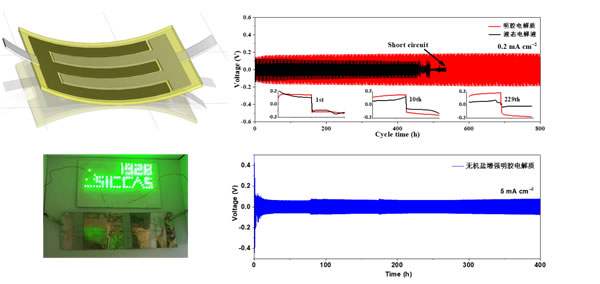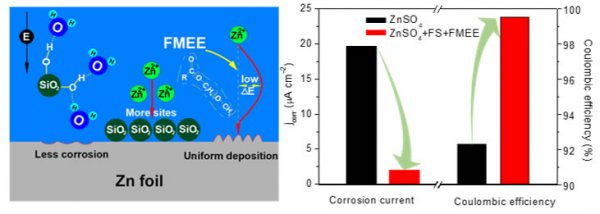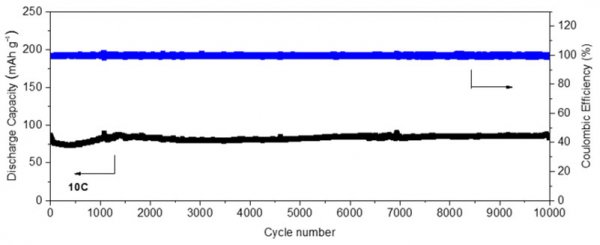Zinc metal is rich in resources and high in specific energy. As a negative electrode, it has a significant promotion advantage in batteries such as zinc manganese, zinc nickel, zinc silver and zinc air. However, zinc metal has serious corrosion and dendrite problems in traditional aqueous electrolytes, which greatly limits the electrochemical performance and cycle stability of zinc-based batteries. In order to effectively improve the stability of zinc anodes, the research team led by Liu Yu, a researcher at the Shanghai Institute of Ceramics, Chinese Academy of Sciences, carried out a series of work to develop a self-supporting gelatin electrolyte separator with high stability and flexibility. This electrolyte has unique thermal reversibility and excellent inorganic salt compatibility. By constructing a stable electrode-electrolyte interface, the corrosion of the zinc anode is significantly reduced, and the cyclic stability of the symmetrical battery is improved (0.2 mA cm-2 stable cycle for 800 h) without obvious dendrite formation. The unique structural design makes the battery flexible and stable against external forces. Further, based on the unique inorganic salt enhancement effect of gelatin, the gelatin electrolyte treated in a high concentration of electrolyte dehydrates, a strong hydrophobic interaction is formed between molecular chains, the thermal stability and mechanical properties of the electrolyte are significantly enhanced The self-supporting solid electrolyte separator of the zinc-based battery with the best mechanical properties reported. Symmetrical batteries can circulate stably for 400 h at current densities of up to 5 mA cm-2. At the same time, the excellent mechanical properties also improve the safety of the battery and expand its application in the field of flexible batteries. Related results have been published in Journal of Materials Chemistry A (2018, DOI: 10.1039 / c8ta08314b) and Journal of Materials Chemistry A (2019, DOI: 10.1039 / c9ta07218g), among which the results of the articles published in 2019 were selected as the cover of the journal, related work The first author is Han Qi, a PhD student. The team also designed a new solid-water electrolyte system. The gas-phase nano-silica (FS) in the system complexes water molecules with surface active groups to inhibit the corrosion of zinc anode by water; and as an inorganic filler, Enhance the diaphragm's resistance to dendrite penetration. The addition of non-ionic surfactant (FMEE) reduces the activation energy of Zn2 + deposition, and the synergistic effect with silica significantly inhibits the growth of Zn dendrites, while improving the Coulomb efficiency. The related work results were published in the Journal of The Electrochemical Society (2019, DOI: 10.1149 / 2.1031906jes), the first author of which is Huang Jiaqi, a doctoral student. The team further developed a highly active cathode material that matched the aforementioned results, and achieved a cycle stability of up to 10,000 cycles under a 10C rate. The relevant work has been accepted by the Journal of Power Sources. The first author is the doctoral student Liu Yunzhao. Corresponding authors and supervisors of the above research work are Liu Yu and associate researcher Chi Xiaowei. Related research work was supported by related projects of the Chinese Academy of Sciences and the Ministry of Science and Technology. Soft Round Sling,Endless Soft Sling,Round Webbing Sling,Endless Round Sling Jiangsu Zhongyi Work Rigging Co., Ltd. , https://www.zy-rigging.com
In-situ construction of the electrode-electrolyte interface stabilizes the zinc anode. 
The solid-water electrolyte reduces zinc anode corrosion and improves Coulomb efficiency. 
Battery cycle diagram of a new type of highly active cathode material.